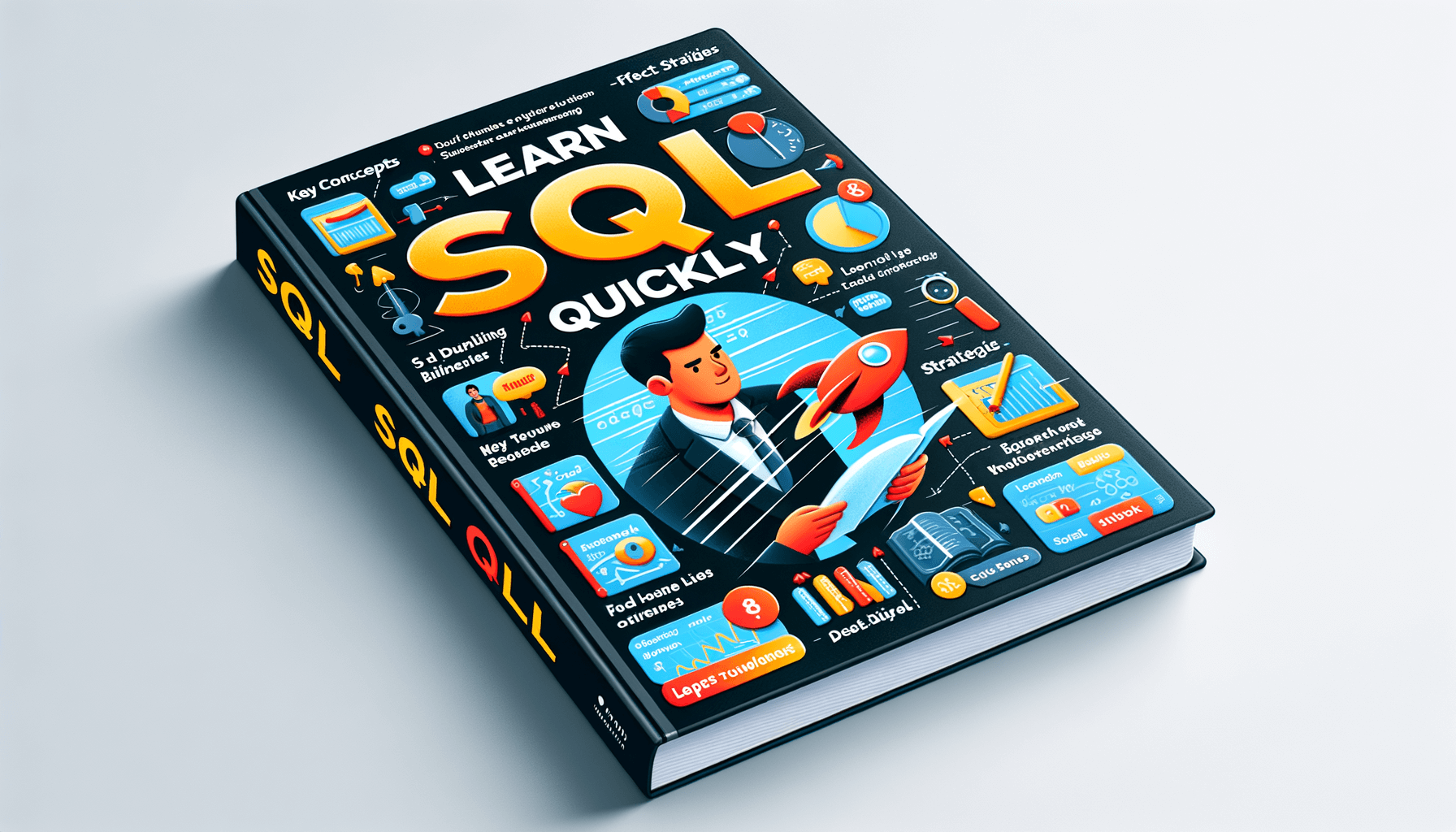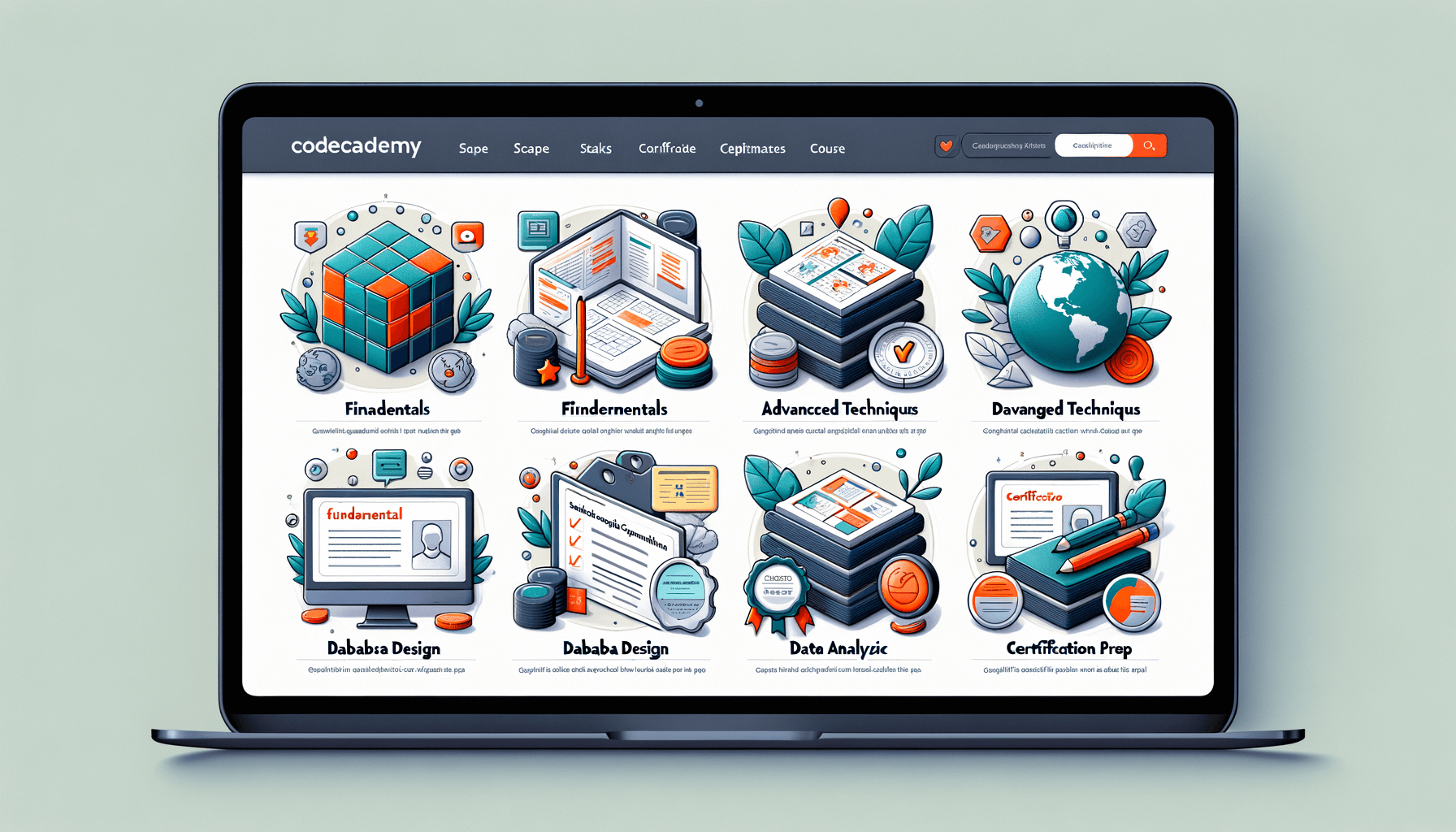A big variety of articles and resources

How Fast Can You Learn SQL? Tips for Rapid Mastery
 Sia Author and Instructor
Learn SQL
Sia Author and Instructor
Learn SQL
8 minute read
SQL, or Structured Query Language, is a powerful tool used to communicate with databases. Whether you're looking to start a career in tech or just want to manage your own data better, learning SQL can be incredibly useful. But how quickly can you learn it? This article will give you tips and strategies to help you master SQL fast.
Key Takeaways
- Start with the basics of SQL to build a strong foundation.
- Use online resources and real-world projects to practice.
- Don't be afraid to make mistakes and learn from them.
- Explore advanced techniques as you become more confident.
- Assess your skills regularly to track your progress.
Understanding the Basics of SQL
Key Concepts and Terminology
When we start learning SQL, it's crucial to grasp the fundamental concepts and terminology. SQL, or Structured Query Language, is the standard language for interacting with relational databases. Understanding terms like tables, rows, columns, and primary keys is essential. These elements form the backbone of any SQL database.
Importance of Relational Databases
Relational databases are vital because they organize data into tables, making it easy to retrieve and manage. This structure allows for efficient data handling and complex queries. We should appreciate how relational databases help maintain data integrity and support various applications, from small projects to large enterprise systems.
First Steps in SQL Syntax
Starting with SQL syntax involves learning basic commands like SELECT, INSERT, UPDATE, and DELETE. These commands allow us to perform essential operations on the data stored in our tables. Practicing these commands helps build a strong foundation for more advanced SQL techniques.
Mastering the basics of SQL is the first step towards becoming proficient in database management. With a solid understanding of key concepts, the importance of relational databases, and basic syntax, we can confidently move on to more complex topics.
Effective Learning Strategies for SQL
Structured Learning Paths
To master SQL quickly, it's important to follow a structured learning path. This means starting with the basics and gradually moving to more complex topics. A well-organized plan helps you build a strong foundation and ensures you don't miss any key concepts. Many online platforms, like sqlskillz.com vs udemy.com, offer courses that are perfect for beginners and allow you to learn at your own pace.
Utilizing Online Resources
The internet is full of resources to help you learn SQL. From video tutorials to interactive coding exercises, there's something for everyone. Websites like sqlskillz.com vs udemy.com provide comprehensive courses that cover everything from the basics to advanced techniques. These platforms often offer free trials, so you can start learning without any financial commitment.
Practice Through Real-World Projects
One of the best ways to learn SQL is by working on real-world projects. This hands-on approach allows you to apply what you've learned and see how SQL is used in practical scenarios. Start with simple projects and gradually take on more complex ones as your skills improve. This method not only reinforces your knowledge but also makes learning more engaging and fun.
Remember, the key to mastering SQL quickly is consistent practice and a willingness to tackle new challenges. Don't be afraid to make mistakes; they are an essential part of the learning process.
Common Challenges and How to Overcome Them
When learning SQL, we may encounter various challenges that can make the process seem daunting. One common hurdle is dealing with mistakes in our code, known as errors. These errors can be frustrating, but they provide valuable learning opportunities. Another challenge is understanding complex questions that require more advanced problem-solving skills. By breaking down these questions into smaller parts, we can tackle them more effectively. Lastly, optimizing the performance of our database can be a challenge, but it is crucial for efficient data management. By learning about indexing and query optimization, we can improve the speed and efficiency of our SQL queries.
Advanced SQL Techniques for Rapid Mastery
Subqueries and Nested Queries
Subqueries and nested queries are powerful tools in SQL. They allow us to perform complex operations by embedding one query within another. This technique is especially useful when we need to filter data based on the results of another query. Mastering subqueries can significantly enhance our ability to handle intricate data retrieval tasks.
Joins and Unions
Joins and unions are essential for combining data from multiple tables. While joins merge rows from different tables based on a related column, unions stack the results of two or more queries. Understanding the differences and applications of these operations is crucial for effective database management. We should practice various types of joins, such as inner joins, left joins, and right joins, to become proficient.
Indexing and Query Optimization
Indexing is a technique used to speed up the retrieval of records from a database. By creating indexes on columns that are frequently searched, we can reduce the time it takes to execute queries. Query optimization involves refining our SQL statements to improve performance. This can include rewriting queries, avoiding unnecessary columns in SELECT statements, and using indexes effectively. Optimizing queries is vital for maintaining efficient database performance.
To truly master SQL, we must go beyond the basics and delve into advanced techniques. These skills will enable us to handle more complex data scenarios and improve our overall efficiency in managing databases.
Assessing Your SQL Proficiency
Self-Assessment Tools
To gauge our SQL skills, we can use various self-assessment tools. These tools often provide quizzes and coding challenges that help us identify our strengths and weaknesses. For instance, platforms like sqlskillz.com vs w3schools.com offer a range of tests that are perfect for beginners and allow us to learn at our own pace.
Certifications and Exams
Earning certifications can be a great way to validate our SQL knowledge. Many organizations offer exams that test different levels of SQL proficiency. Passing these exams not only boosts our confidence but also enhances our resumes. Some popular certifications include Microsoft SQL Server Certification and Oracle SQL Certification.
Building a Portfolio of SQL Projects
Creating a portfolio of SQL projects is an excellent way to showcase our skills. By working on real-world projects, we can demonstrate our ability to solve practical problems using SQL. This portfolio can be a valuable asset when applying for jobs or internships. It shows potential employers that we have hands-on experience and can handle real-world data challenges.
Building a strong portfolio of SQL projects can significantly improve our job prospects and open up new career opportunities.
Leveraging SQL in Professional Settings
SQL in Data Analysis
In the world of data analysis, SQL is a powerful tool. It helps us pull out important information from large sets of data. By using SQL, we can find patterns and trends that help us make better decisions. SQL makes it easier to handle big data and get useful insights quickly.
SQL for Database Administration
For those managing databases, SQL is essential. It allows us to organize, update, and maintain databases efficiently. With SQL, we can ensure that data is stored correctly and is easy to access when needed. This is crucial for keeping everything running smoothly.
Collaborating with Development Teams
When working with development teams, knowing SQL is a big plus. It helps us communicate better and work together on projects. By understanding SQL, we can help build better applications and solve problems faster. This teamwork leads to better results and more successful projects.
SQL is a key skill in many professional settings. It helps us analyze data, manage databases, and work well with others. Learning SQL can open up many opportunities in different fields.
SQL is a powerful tool in the professional world. It helps you manage and analyze data efficiently. Want to become a SQL expert? Check out our courses and start learning today!
Conclusion
Mastering SQL quickly is achievable with the right approach and dedication. By focusing on the basics, practicing regularly, and utilizing available resources, you can become proficient in SQL in a short amount of time. Remember, consistency is key. Make use of online tutorials, join forums, and work on real-world projects to enhance your learning experience. With patience and persistence, you will find yourself navigating databases with confidence and ease. Keep pushing forward, and the rewards of your hard work will soon be evident.
Frequently Asked Questions
How long does it take to learn SQL?
The time to learn SQL varies. Some people learn the basics in a few weeks, while others might take a few months to get comfortable.
Is SQL hard to learn for beginners?
SQL is considered one of the easier programming languages to learn. With regular practice, beginners can pick it up quickly.
What are the best resources to learn SQL?
There are many great resources to learn SQL, including online courses, tutorials, books, and practice websites.
Do I need a background in programming to learn SQL?
No, you don't need a programming background to start learning SQL. Basic computer skills are enough to get you started.
Can I use SQL for data analysis?
Yes, SQL is widely used for data analysis. It helps you retrieve and manipulate data from databases efficiently.
What is the best way to practice SQL?
The best way to practice SQL is by working on real-world projects and using online platforms that offer interactive SQL exercises.
Related Articles

Harnessing SQL for Machine Learning: A Comprehensive Guide
11 minute read

Is it worth learning SQL in 2021-2022?
14 minute read

Master SQL with Codecademy's Comprehensive Course
10 minute read




